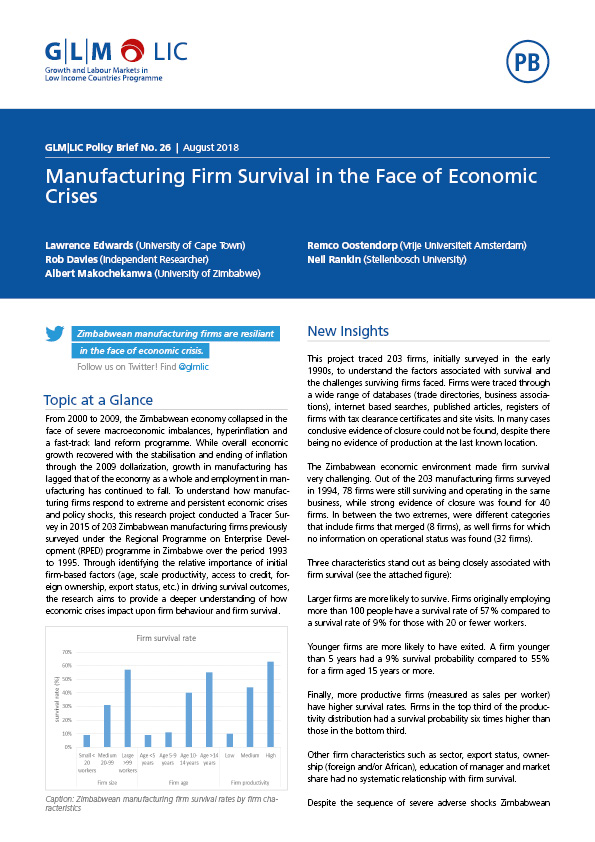From 2000 to 2009, the Zimbabwean economy collapsed in the face of severe macroeconomic imbalances, hyperinflation and a fast-track land reform programme. While overall economic growth recovered with the stabilisation and ending of inflation through the 2009 dollarization, growth in manufacturing has lagged that of the economy as a whole and employment in manufacturing has continued to fall. To understand how manufacturing firms respond to extreme and persistent economic crises and policy shocks, this research project conducted a Tracer Survey in 2015 of 203 Zimbabwean manufacturing firms previously surveyed under the Regional Programme on Enterprise Development (RPED) programme in Zimbabwe over the period 1993 to 1995. Through identifying the relative importance of initial firm-based factors (age, scale productivity, access to credit, foreign ownership, export status, etc.) in driving survival outcomes, the research aims to provide a deeper understanding of how economic crises impact upon firm behaviour and firm survival.
